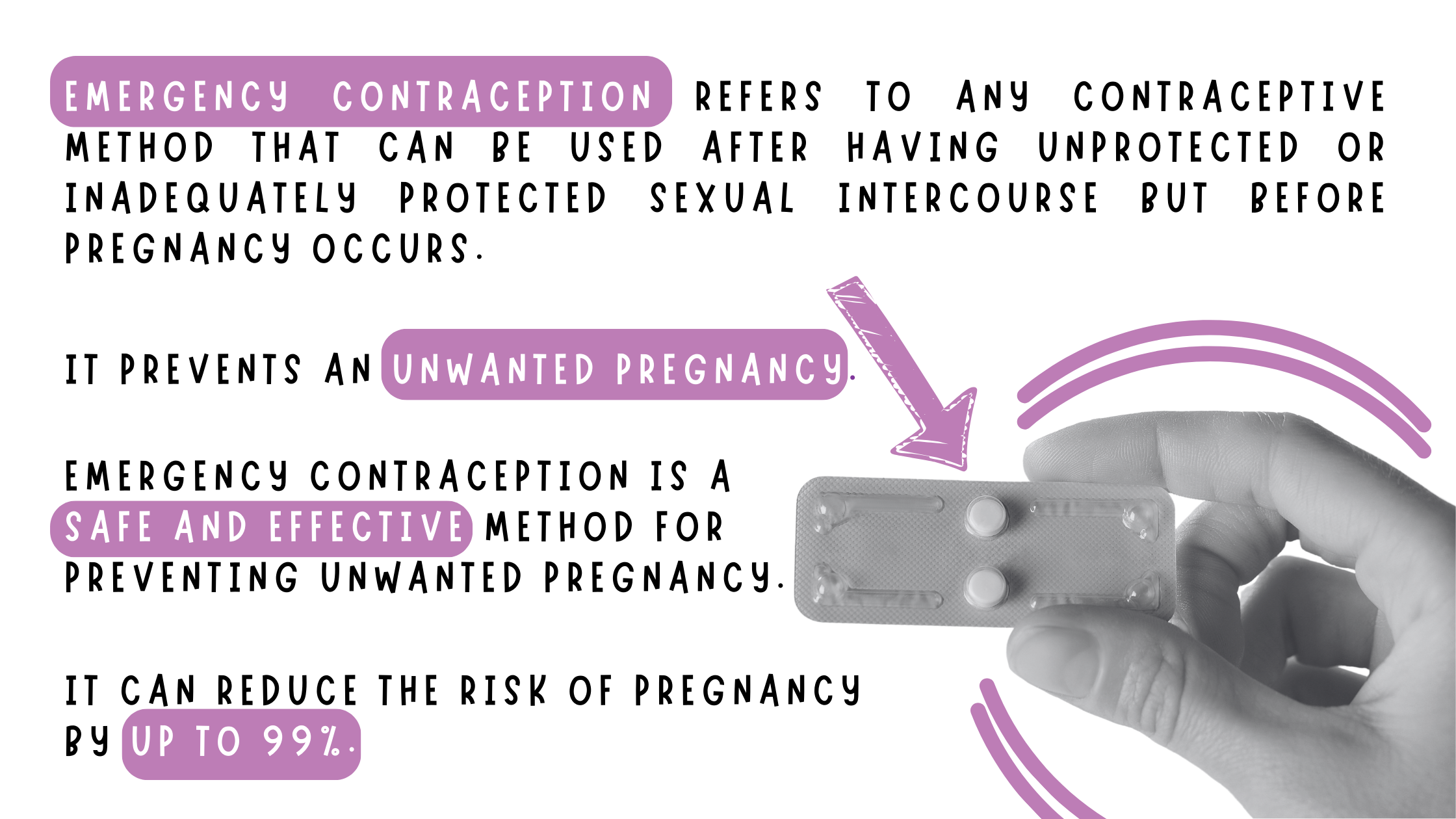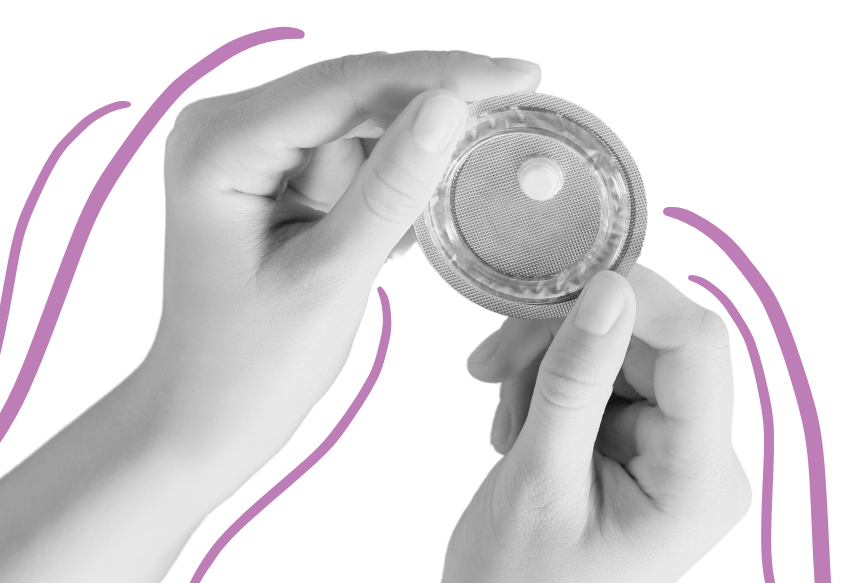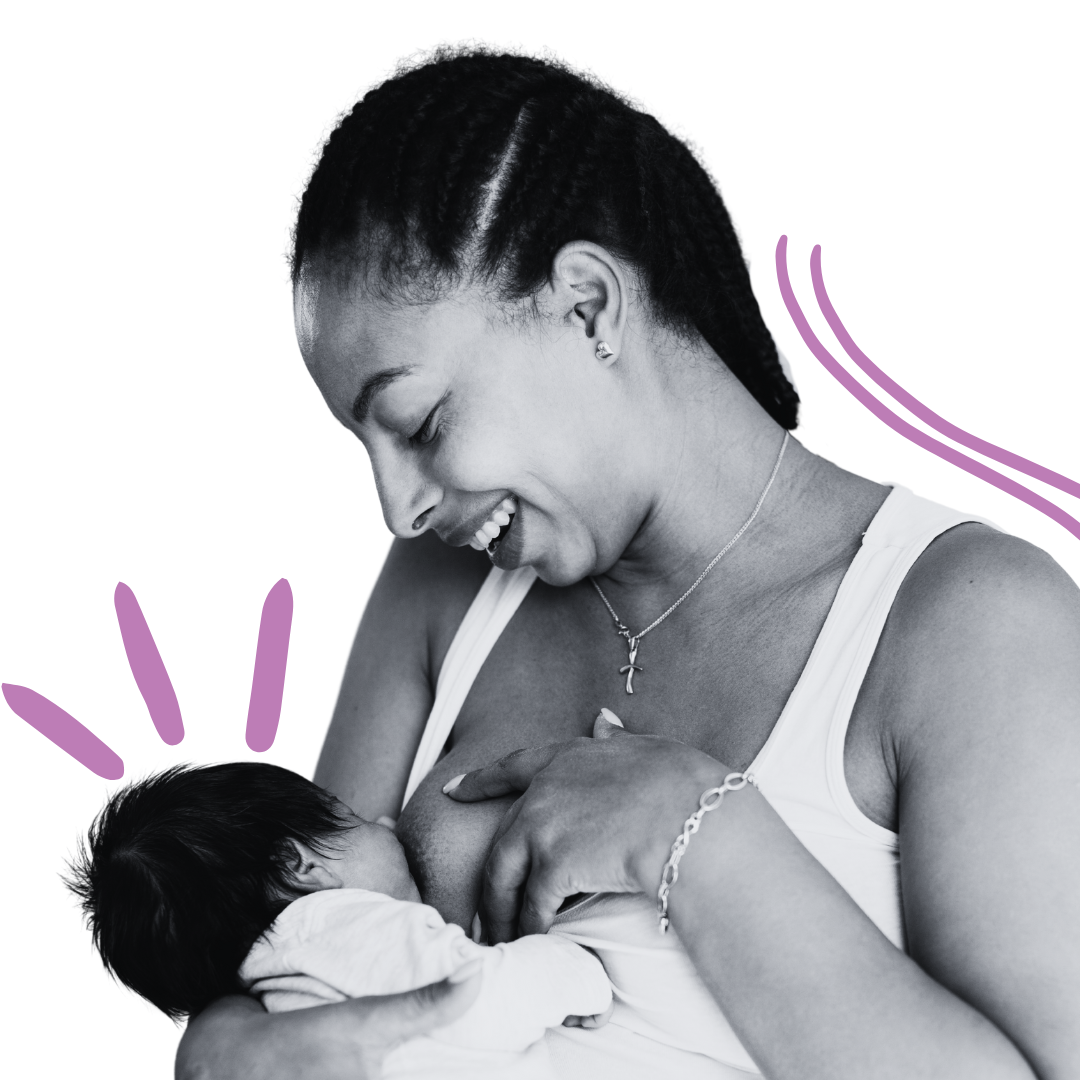
Emergency contraception is safe
 All common emergency contraception methods are extremely safe and have limited side effects.
All common emergency contraception methods are extremely safe and have limited side effects.
The World Health Organization (WHO) eligibility criteria have no absolute contraindications for using emergency contraception pills.
The main contraindication against all emergency contraception methods is a pre‑existing pregnancy. In such cases, emergency contraception pills are no longer effective.
A pregnancy test is however not necessary before taking emergency contraception pills, since they have no adverse effect on an existing pregnancy.
What are the side effect of emergency contraception methods?
The side effects that are reported by users of Levonorgestrel* and UPA** emergency contraception pills are similar.
- Most common are headaches, which are mentioned by less than 20%.
- Dysmenorrhoea and nausea are each reported by less than 15% of users.
- Abdominal pain, dizziness, fatigue, upper abdominal pain and back pain are mentioned by around 5% or less of users.
- Additionally, women may experience irregular vaginal bleeding after using emergency contraception pills.
The side effects after insertion of an IUD for emergency contraception are the same as when an IUD is inserted for ongoing contraception. These include abdominal discomfort and changes in vaginal bleeding or spotting.
Some of the side effects of copper IUDs, such as expulsion or heavy menstrual bleeding, are only relevant when a woman decides to keep the IUD for ongoing protection.
* Levonorgestrel (LNG) is a progestin that has been used for contraception for more than 50 years.
** Ulipristal acetate (UPA) is a selective progesterone receptor modulator. It was recently introduced as an alternative to LNG emergency contraception pills. It is dosed at 30 mg. UPA emergency contraception pills have been approved for use until 120 hours (five days) after unprotected sex.
Are there long-term health effects?
No serious adverse health effects have been reported for emergency contraception pills.
Specifically, no causal relationship has been found with thromboembolism after emergency contraception pills use.
Because emergency contraception pills are used occasionally, the hormonal intake is much lower than among women who use Levonorgestrel for a longer period of time, therefore adverse events are unlikely.
Experience with UPA is less extensive, but so far no serious adverse health outcomes have been identified.
Is the use of IUD as an emergency contraception method safe?
The most effective method for EC is placement of a copper intrauterine device (IUD) within five days of an episode of unprotected sex.
When the time of ovulation can be estimated, a Cu‑IUD can be inserted beyond five days after intercourse, as long as insertion does not occur more than five days after ovulation. Any copper IUD is safe and effective. No evidence exists on the effectiveness and safety of hormonal intrauterine contraception as emergency contraception.
After post‑coital insertion of an IUD, the pregnancy rate is less than 0.1%.7 Furthermore, the IUD can provide up to 12 years of ongoing contraceptive protection after placement.
The main mechanism of action of the IUD is to prevent fertilisation by inhibiting sperm viability and function. If ovulation has already occurred and fertilisation has taken place, copper ions influence the female reproductive tract and impair endometrial receptivity. If a woman is already pregnant, use of an IUD is contraindicated.
The only examination that is essential before using copper IUDs is a pelvic/genital examination/STI clinical risk assessment.
It is recommended that a routine pregnancy check is done before insertion of an IUD, because this may lead to a spontaneous abortion if a woman is already pregnant.
IUDs may be inserted regardless of history or risk of STIs, previous ectopic pregnancy, young age, and nulliparity. However, if a woman is diagnosed with STIs, particularly gonorrhoea or chlamydia, broad‑spectrum antibiotics should be used.
What are the emergency contraception methods to use if a woman is breastfeeding?
 When a woman is breastfeeding, IUDs can be used for emergency contraception.
When a woman is breastfeeding, IUDs can be used for emergency contraception.
If emergency contraception pills are preferred, Levonorgestrel emergency contraception pills may be used.
Although a small amount of Levonorgestrel appears in breast milk, no adverse effects on the quality or quantity of the milk, or on the infant have been identified.
When UPA emergency contraception pills are used, it is recommended to pump and discard the milk during one week, after which breastfeeding can be resumed.
Nevertheless, studies on mifepristone (a compound very similar to UPA) at higher doses show very low levels in breast milk that are not considered to be harmful.
What emergency contraception method a woman with severe cardiovascular disease, migraine or severe liver disease should take?
In case of a history of severe cardiovascular disease, migraine or severe liver disease, there may be theoretical risks in using emergency contraception pills, but the advantages generally outweigh the disadvantages.
Is there a health risk in case of repeat use of the emergency contraception?
There are no known adverse health effects if emergency contraception pills are used more than once during the same menstrual cycle, although the bleeding pattern will be affected.
Although no long‑term adverse health effects are to be expected from repeat use, women do suffer more from side effects if they use emergency contraception pills repeatedly, particularly bleeding irregularities.
Effectiveness of emergency contraception pills is not affected by repeat use.
when
Subject
Contraception









